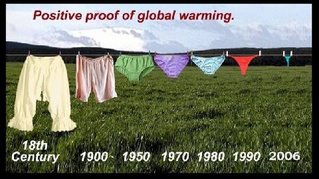
A funny cartoon for a snowy afternoon: Snowman House of Horror
Have you slaved over a cover letter that will get your story noticed by the editors at Electric Spec? Well, don't. We'll read your story unless it is clear from the cover letter that the story does not meet our guidelines. However, I do grow tired of seeing certain things in cover letters that really don't belong there, such as:
1) personal information: age, marital status, number of children, or day job
2) information about the plot of the story (we are going to read it, after all)
3) the phrase, "I've been writing since I was (fill in the blank) years old"
4) requests for comments about the story
5) information about how much you love to write
Please DO include the essentials listed in the Electric Spec submission guidelines, including the name of the story and author in the subject matter line and a word count. A short summary of past publication credits is helpful, but not essential. Be aware that if you include a link to your biographical information, I probably won't go there. I usually don't have time to follow links around.
Here's a sample over a cover letter that would be just dandy:
Dear Electric Spec Editors:
Please consider the attached 4000-word
story, "Hayward the God's Eye Wanderer" for publication in Electric Spec. My
short stories have previously appeared in IGMS, The New Yorker, and Static
Movement. Thanks for your
consideration.
Sincerely,
Edward E. Egglsby

And issue number 2 . . .
Yup, no adverbs. What else do these opening sentences have in common? Very few adjectives, lots of strong verbs (except for stories starting with dialogue), and an element of mystery that draws the reader into the story. They all match the tone for the rest of the story as well, but you'd have to read the story to verify that. Can anyone spot other similarities?
This list also highlights that many approaches work. You can start with setting, dialogue, or character. You can start with complex sentences or short fragments. You can include world-specific words or everyday vocabulary. Lots of choices.
This should not imply that first lines are more important than the rest of the story. I've read first lines that I've loved only to be disappointed later on. A sure rejection. I've also read stories that didn't work well at the beginning but were worth trying to fix because of the rest of the tale.
"Today's announcement heralds the beginning of increased title availability andHow does all this apply to us? Well, I believe in some standardization, even for e-zines, and focusing on distribution is a good start. I think the internet fosters a valuable free-for-all attitude, but when you download a file from Electric Spec, even for free, you've got to know that you're getting what we advertise: a well-written, bug-free, tightly edited story. I think we're achieving that so far, but some of the e-books and e-zines aren't always so stringent. I'd hate for them to put a black mark on the e-publishing industry as a whole, and standards will help the maintain the quality people have come to expect from print zines and books. I'm a firm believer in the power of blogs and e-zines and e-books, as well as more traditional forms of print, because I believe in words and communication. More writing and more reading and more availability can only improve the human condition, and, used wisely, the Internet is a path in the right direction.
lower costs for publishers entering the eBook and digital reading market,"
stated Neil de Young, Hachette Book Group USA...Over forty publishers,
technology companies and organizations were involved in the OCF Working Group,
the committee responsible for the creation of the standard, including Adobe
Systems Inc., Benetech, DAISY Consortium, eBook Technologies Inc., Hachette Book Group, Harlequin, iRex Technologies, Mobipocket (An amazon.com company),
netLibrary, OverDrive Inc., Random House, Simon & Schuster, WGBH and many
others.
| The Vampire Novel Hmm, very interesting! You scored 139! |
| People are addicted to you, as you make such entertaining and sexy reading material. You get people’s imaginations flowing and make for the type of book people want to read more than once. Cults have been inspired by the likes of you. |
 |
We're also striving to make the packaging more sophisticated, although it's hard because we don't want to lose our core readership. But I'm finding that many middle-aged people still want to read fantasy and science fiction -- they just don't want to be seen doing it! So one of the tricks of the trade is to make the books look a little more upscale.
A successful short story is a marvel of compression, nuisance, inference and suggestion. If the novel invites one to enter another world, the short story
invites one to peer through a peephole into the world, and yet the world has to
have the same reality as in a novel. It truly is the universe in a grain of
sand. This is done by compression and implication. Every single word has to help
the story, or it hurts it. The short story is the least forgiving form of
narrative fiction, with no room for redundancies, for backing up to explain what
was meant before, for auctorial intrusions that may be perfectly allowable in
the novel.